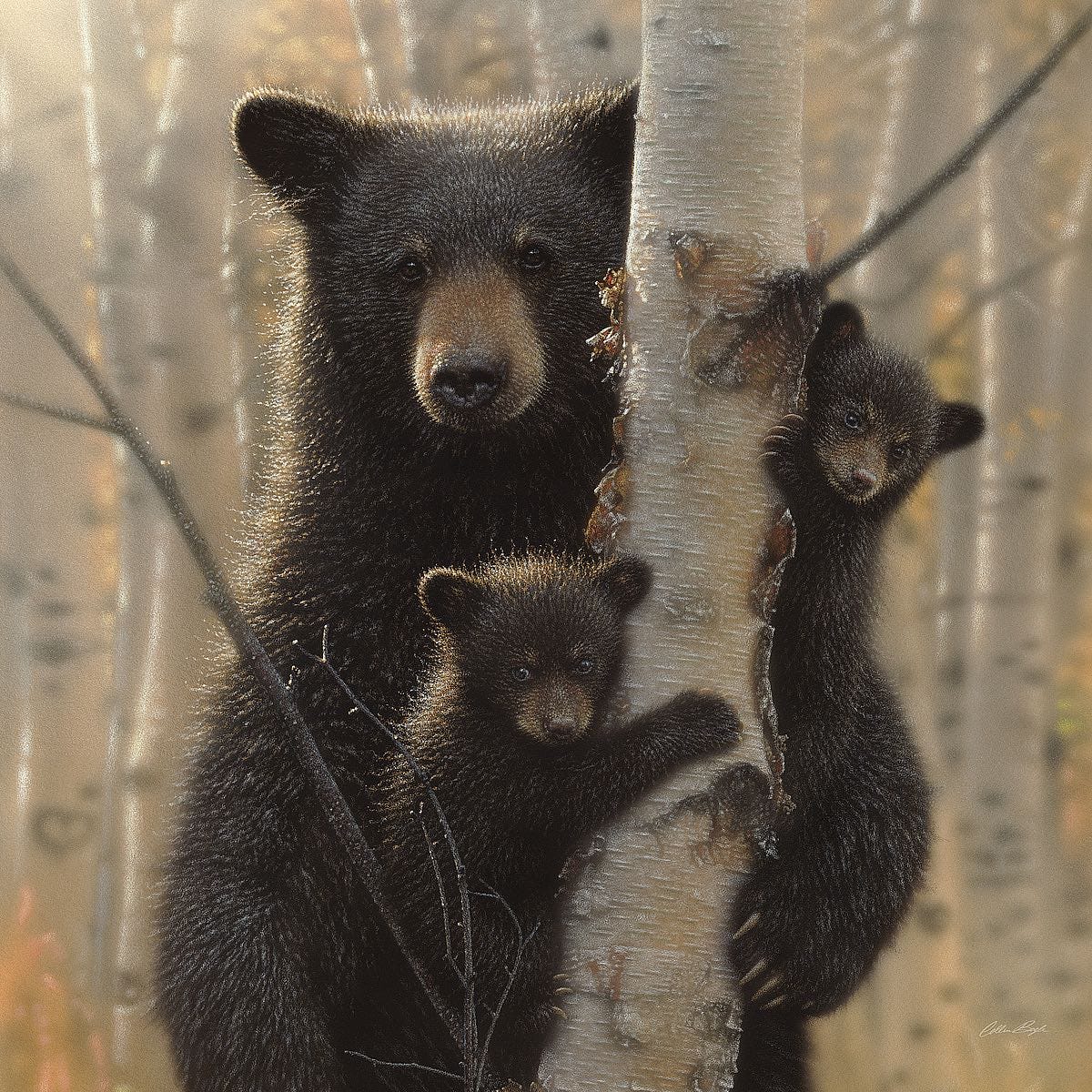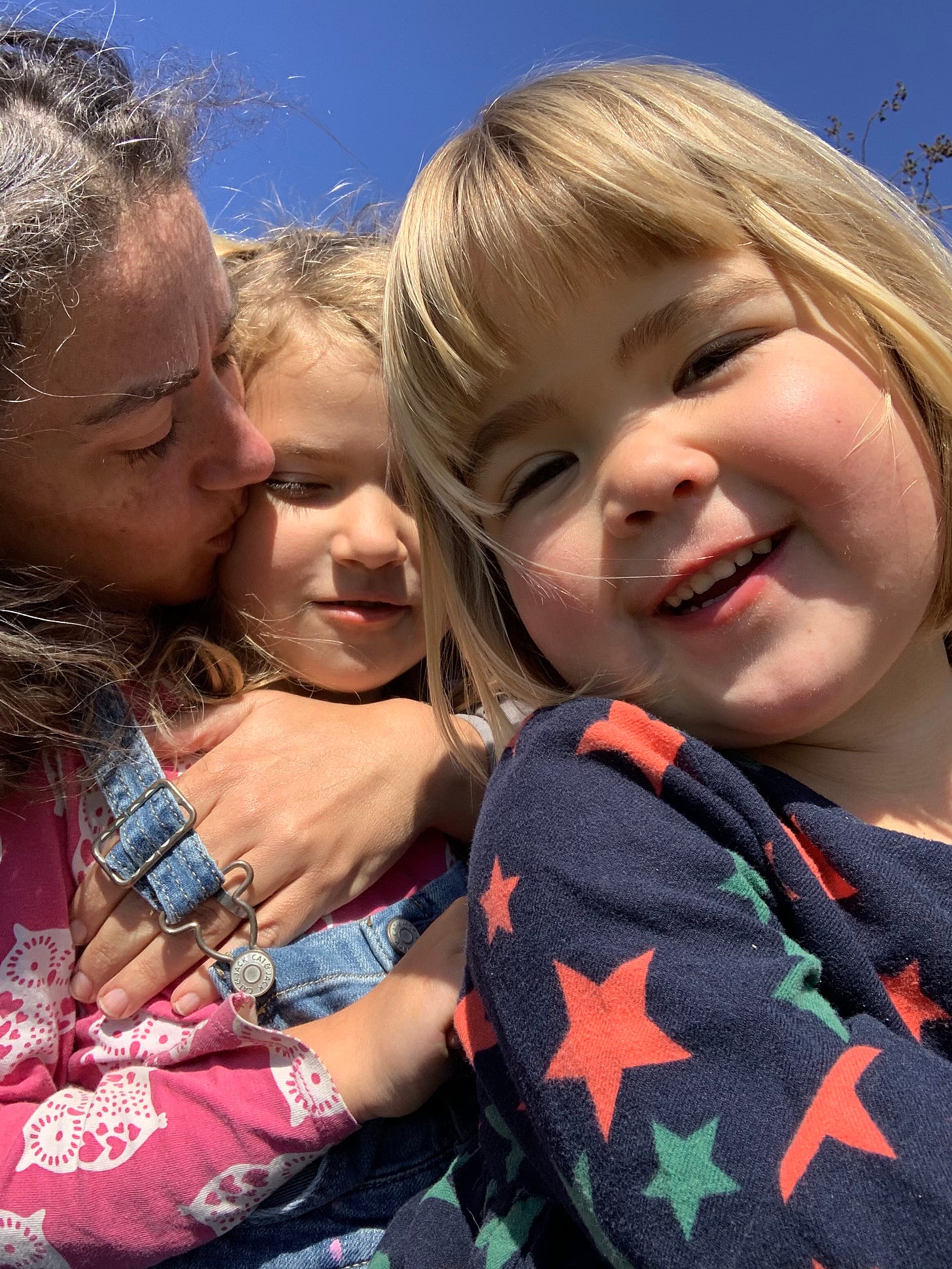I’ve been thinking a lot lately about mama bears. It’s a beautiful trope in some ways. It acknowledges the deep, instinctual feelings that so many of us have for protecting and nurturing our kids. Unlike so many of the cliches of motherhood—self-sacrificing, endlessly patient, inherently peaceful—this one is strong and brave. I love the cartoonish image in my head of a woman lifting a car many times her size off of a trapped kid, her biceps bulging. Don’t get it twisted—there’s nothing weak about motherhood.
However, I worry that this apocryphal story of strength is also the seed of a lot of misguided activism. We feel threatened by something—CRT, a “mean” kid, distance learning—and our limbic systems spring into high gear, fueled by the mama bear story. We search for an enemy against which we will defend our little ones. We shut down the parts of our brains and hearts that knows that almost everyone is trying to do right by kids in the best ways that they know how, even if we disagree about what the best ways are. We stop listening. We start shit talking. We look for a car to lift.
In my experience, the most dramatic of the mama bears are those with the least realistic threats—the White, privileged moms, like me, who are used to getting things our way. We are accustomed to having some power and influence, and likely have some expendable time and energy. The most pernicious examples of the mama-bear-gone-wrong are the “mothers of mass resistance”—those women who lined up outside William Frantz Elementary School to scream at little Ruby Bridges as she walked up the steps. Contemporary anti-racist progressives abhor those women, but have a way of foaming at the ursine mouth when something disrupts our schedules or expectations, threatens our sense of control, or contradicts some thing we hold dear about our children’s identities (see: our identities).
A hallmark of the mama-bear-gone-wrong is when you are thinking individualistically—This can’t happen to me! This can’t happen to my child!—about problems and potential solutions that are actually collective (and about which you often have the least to lose). You want to make sure your child isn’t bullied, but don’t stop to wonder about the culture of the class or the school community as a whole. You don’t want your kid learning a particular thing too early, but you don’t stop to wonder what learning that thing means for other kids’ in the class and/or whether it is even an option not to learn it (see: racism, transphobia etc.). The mama-bear-gone-wrong has gone so fight-or-flight that she has lost her ability to be genuinely curious.
A hot button case in point: I really don’t want to go back to distance learning. I had a pity party for myself when the thought first crossed my mind over winter break. And then I had a good talk with myself about prioritizing the needs of a wider community, being resilient, and paying attention to how my kids are actually doing rather than telling myself a big story about how they will be impacted. I started thinking about how I might collaborate with a neighbor and enjoy some weekday weed gummies. I talked to teachers and other parents about what they were thinking.
I don’t have to pretend that distance learning is my or my kids’ first choice. It isn’t. I don’t have to deny that it puts a strain on my mental health and messes with my work. (This is critical, because negating myself entirely is textbook feminine martyrdom and/or white savior bullshit). But I also don’t have to mama bear my way through the discernment that the whole school is doing about whether this is the right thing for us. I can get curious about what other people are experiencing and thinking. I can express myself with compassion for those whose economic and emotional circumstances differ. And yes, I can continue to honor my own frustration and preferences in the right proportion to those of a wider community.
And to be honest, when I sink into this wiser place, the only thing that makes me want to maul a motherfucker is that this country pits women, and other marginalized folks, against one another—exhausted mothers vs. exhausted teachers, unpaid caregivers vs. underpaid educators, scared parents vs. angry parents. Enough. Already.
I have some big feelings two years into a pandemic. But I want to bring myself back to a collective mindset whenever I can and save my mama bear energy for the real systemic threats—hijacked federal policies around care, underfunded public schools and a school day that still doesn’t line up with the workday, and so much more—that keep us fighting one another for time, space, and dignity. Like all animals, I plan on shaking off my nerves, acknowledging my fears and disappointments, and then paying attention to who and what is around me.
And perhaps most importantly: my cubs are my heart.
I refuse to use that love as an excuse for my own misdirected anger. Truth be told, it dishonors them and our bonds, the way they have made me more fierce, sure, but also more adaptable and tender. Contrary to forcing me to contract and defend, they have expanded my humanity, linking me to this big preposterous story where defenseless tiny humans are born and taken care of despite all selfish or economic incentives otherwise. In these exhausting, volatile times, I want to approach my advocacy and my accompaniment from that wild, wise starting place.






This is indeed important thinking. I don't like any image that tends to glorify putting ones own interests or one's children's interest above that of others. Might we call that attitude Exceptionalism? No ones child is actually more important than other people's children.
I was for many years a teacher. It is a huge job in the most ordinary of circumstances, teaching and working through all manner of issues with groups of children who bring their individual issues to school with them. In addition, because of the regular intensive interaction within the classroom, teachers tend to catch everything that goes around in the building. Everyone wants children back in in-person school, but it is important to consider the risk our preferences may load onto others. How would we feel if our own mothers were teaching in those buildings? If father were the school nurse?
It's important, and necessary to name our privilege - and face its pernicious reality in our society - and its damaging consequences.